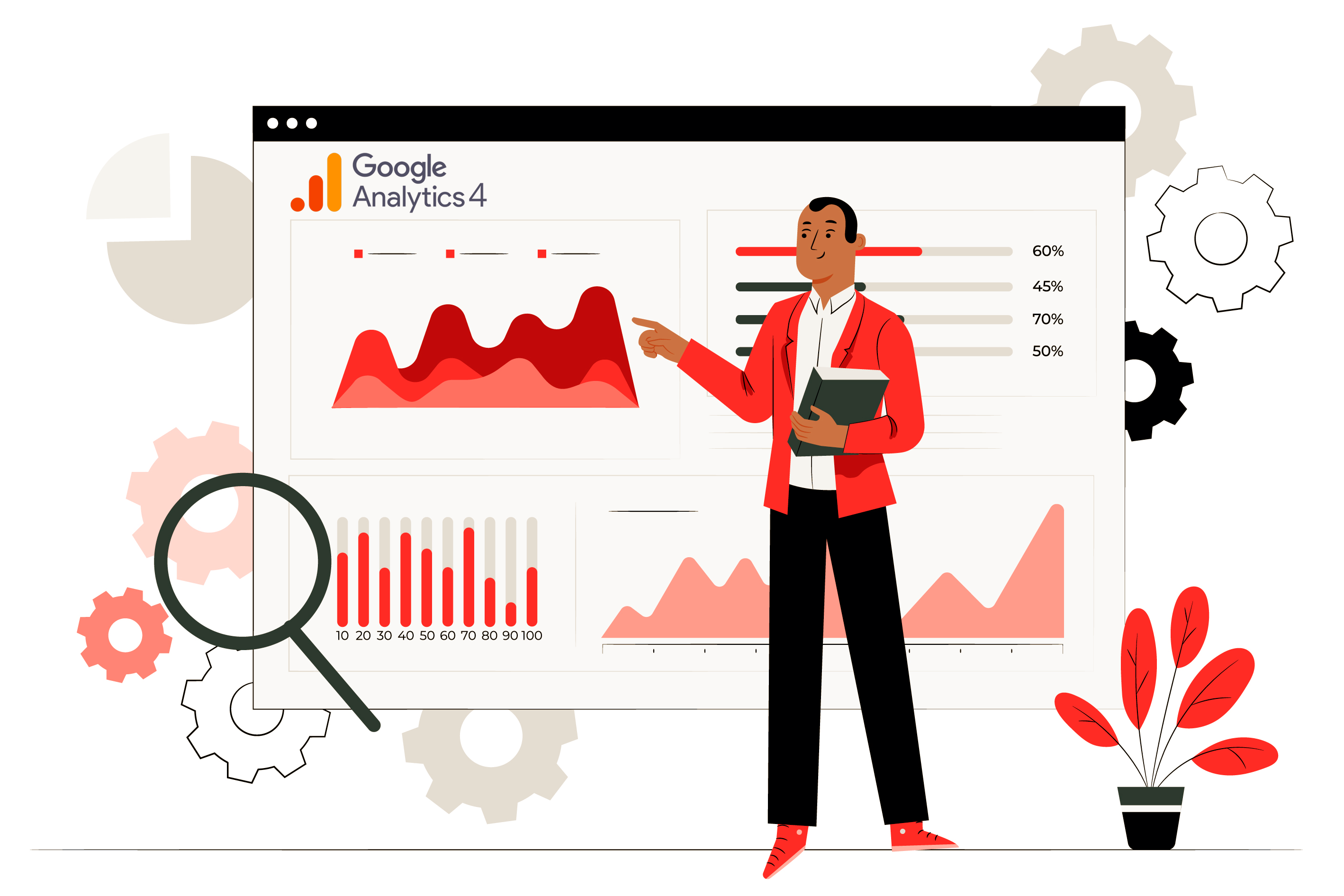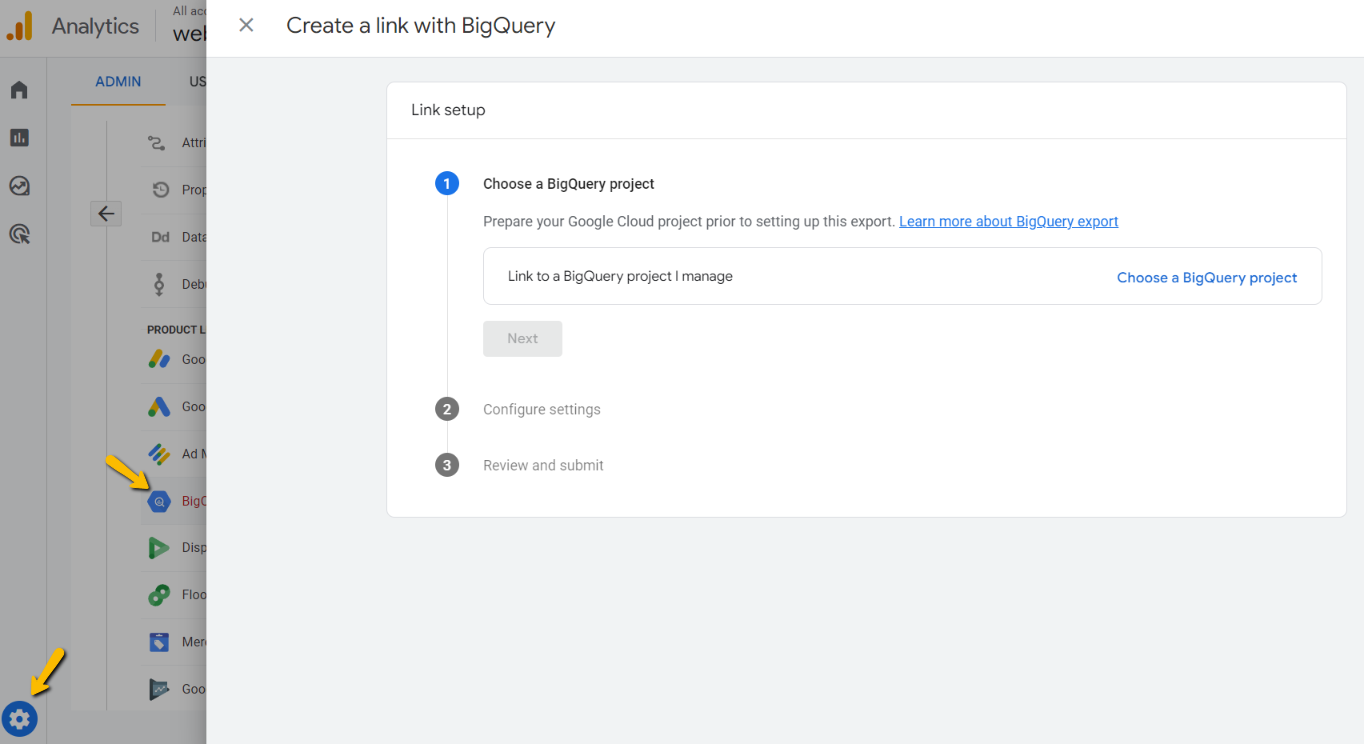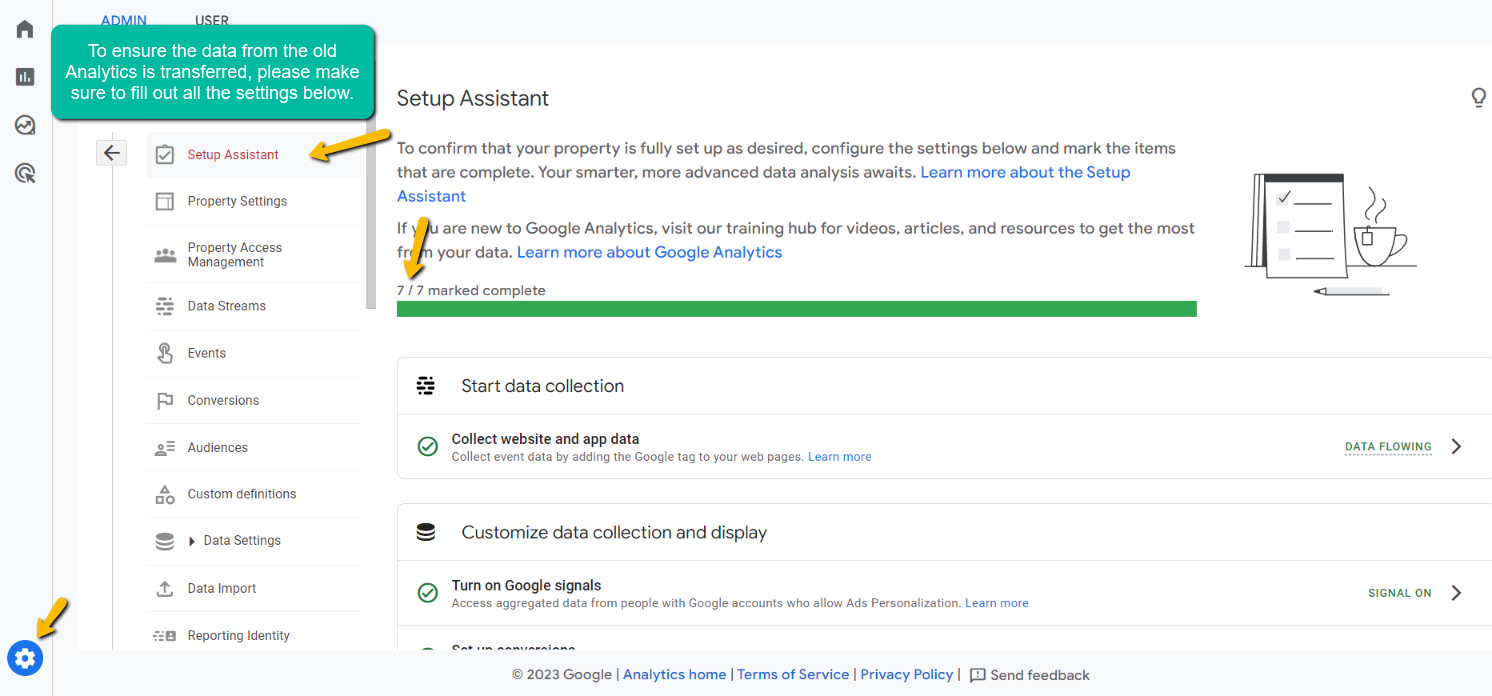What is Google Analytics 4?
Google Analytics 4, often abbreviated as GA4, is the latest version of Google Analytics, a web analytics platform offered by Google. GA4 was officially announced in October 2020 and is designed to provide a more comprehensive and user-centric approach to tracking and analyzing user behavior on websites and mobile apps. Here are some key features and aspects of Google Analytics 4:
Event-based tracking: GA4 is built around an event-driven tracking model, which means it focuses on capturing and analyzing user interactions and events on your website or app. Events can include page views, button clicks, form submissions, video plays, and more. This approach allows for more flexible and detailed tracking of user behavior.
Enhanced user tracking: GA4 places a greater emphasis on tracking individual users across different devices and platforms. It uses a combination of user identifiers, such as user IDs and anonymous identifiers, to create a more holistic view of user journeys.
Improved reporting and analysis: GA4 offers a more intuitive and customizable reporting interface, making it easier to access and analyze data. It provides event-based reporting, allowing you to see how users engage with specific events and actions on your site.
Predictive metrics: GA4 includes predictive metrics that use machine learning to forecast future user behavior and trends, helping businesses make data-driven decisions.
Integration with Google BigQuery: GA4 offers seamless integration with Google BigQuery, a powerful data warehouse and analytics platform. This allows for more advanced data analysis and customization.
Privacy-focused: Google Analytics 4 is designed with privacy in mind. It allows for more control over data collection and retention and includes features to help businesses comply with privacy regulations, such as GDPR and CCPA.
Cross-platform tracking: GA4 is designed to track user interactions across websites and mobile apps, providing a more unified view of user behavior regardless of the device or platform they use.
Event tagging and customization: Users can create custom events and event parameters, allowing for highly tailored tracking of specific actions and interactions on their websites or apps.
Audience building: GA4 includes advanced audience-building capabilities, making it easier to create and target specific user segments for marketing and remarketing purposes.
Real-time data: GA4 provides real-time reporting, enabling businesses to monitor user activity on their websites or apps as it happens.
While Google Analytics 4 is the latest version of the platform, Google continues to support Universal Analytics (the previous version). However, it is recommended that businesses and website owners transition to GA4 to take advantage of its enhanced features and capabilities, as Google is expected to focus its development efforts on GA4 in the future.
Should I still use the Universal Analytics?
Transition to GA4: Google has strongly encouraged users to start transitioning to GA4. While Universal Analytics still works, Google’s development efforts and new features are likely to be concentrated on GA4. If you want to take advantage of the latest analytics capabilities and features, it’s a good idea to start planning your transition to GA4.
Long-term viability: If you plan to use Google Analytics for the long term, it’s a good idea to transition to GA4 sooner rather than later. Google may eventually discontinue support for Universal Analytics, and you’ll want to ensure your analytics setup is up-to-date.
New features: GA4 offers several new features and capabilities, such as event-based tracking, predictive metrics, cross-platform tracking, and more detailed user journey analysis. If these features are important for your business or website, transitioning to GA4 would be beneficial.
Privacy compliance: GA4 is designed with privacy in mind and offers more robust privacy controls. If you need to comply with privacy regulations like GDPR or CCPA, GA4 might make it easier to manage data collection and user consent.
Customization: GA4 provides greater flexibility in event tracking and custom reporting. If you need a high level of customization and granularity in your analytics data, GA4 is a better choice.
Data continuity: If you transition from Universal Analytics to GA4, it’s important to plan for data continuity. Ensure that historical data is preserved and that you can still access the data you need for reporting and analysis.
Resource availability: Consider the resources and expertise available to you. Transitioning to GA4 might require changes to tracking implementations and reporting setups. Ensure you have the necessary skills or access to experts who can assist with the transition.
Conclusion
The decision to embrace Google Analytics 4 (GA4) sooner rather than later is not just a matter of keeping up with the times—it’s a strategic move that can significantly benefit your business or website. GA4 represents the future of web analytics, offering a wealth of advanced features and capabilities that can revolutionize the way you understand and leverage user data.
With event-based tracking, enhanced user tracking, predictive metrics, cross-platform tracking, and robust privacy controls, GA4 equips you with the tools needed to gain deeper insights into user behavior, adapt to evolving privacy regulations, and make data-driven decisions that propel your success.
Delaying the transition from Universal Analytics to GA4 may mean missing out on these valuable features and insights, as Google is expected to concentrate its development efforts on GA4 moving forward. So, the sooner you embark on this transition journey, the sooner you can harness the full power of GA4 to optimize your website or app’s performance, enhance user experiences, and ultimately achieve your digital goals.
In this rapidly evolving digital landscape, staying ahead of the curve with GA4 is not just an option; it’s a strategic imperative. Don’t wait—start planning your transition to Google Analytics 4 today and position your business for a more data-driven and successful future. To learn more about tips and tricks on how to use Google Analytics 4, click here.
FAQs
1. What is Google Analytics 4 (GA4) and why is it important?
Google Analytics 4 (GA4) is the latest version of Google’s web analytics platform. It’s crucial because it offers advanced features like event-based tracking, enhanced user tracking, predictive metrics, and more. GA4 is designed to provide a comprehensive understanding of user behavior and is the future of Google Analytics.
2. Is Universal Analytics still supported, and can I continue using it?
Yes, as of my last knowledge update in September 2021, Google was still supporting Universal Analytics (UA). You can continue using it. However, Google encourages transitioning to GA4 as they are likely to focus their development efforts on GA4 in the future.
3. What are the key benefits of transitioning to GA4 from Universal Analytics?
Transitioning to GA4 offers benefits like access to new features and capabilities, enhanced privacy compliance, more customization options, and the ability to track user interactions across various platforms. It’s essential for staying up-to-date and taking advantage of modern analytics tools.
4. How do I transition from Universal Analytics to GA4, and what should I consider?
Transitioning involves setting up a GA4 property, updating tracking codes, and ensuring data continuity. Consider factors like the long-term viability of your analytics setup, the need for new features, compliance with privacy regulations, and the availability of resources and expertise.
5. Can I keep my historical data when transitioning to GA4?
Yes, it’s possible to preserve historical data when transitioning to GA4. Google provides tools and guidelines to help migrate your existing data. It’s crucial to plan for data continuity to ensure you can still access and analyze your historical analytics data effectively.



